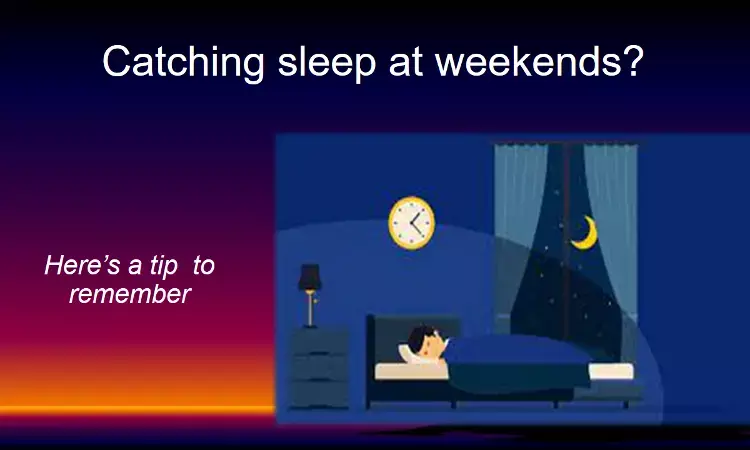- Home
- Medical news & Guidelines
- Anesthesiology
- Cardiology and CTVS
- Critical Care
- Dentistry
- Dermatology
- Diabetes and Endocrinology
- ENT
- Gastroenterology
- Medicine
- Nephrology
- Neurology
- Obstretics-Gynaecology
- Oncology
- Ophthalmology
- Orthopaedics
- Pediatrics-Neonatology
- Psychiatry
- Pulmonology
- Radiology
- Surgery
- Urology
- Laboratory Medicine
- Diet
- Nursing
- Paramedical
- Physiotherapy
- Health news
- Fact Check
- Bone Health Fact Check
- Brain Health Fact Check
- Cancer Related Fact Check
- Child Care Fact Check
- Dental and oral health fact check
- Diabetes and metabolic health fact check
- Diet and Nutrition Fact Check
- Eye and ENT Care Fact Check
- Fitness fact check
- Gut health fact check
- Heart health fact check
- Kidney health fact check
- Medical education fact check
- Men's health fact check
- Respiratory fact check
- Skin and hair care fact check
- Vaccine and Immunization fact check
- Women's health fact check
- AYUSH
- State News
- Andaman and Nicobar Islands
- Andhra Pradesh
- Arunachal Pradesh
- Assam
- Bihar
- Chandigarh
- Chattisgarh
- Dadra and Nagar Haveli
- Daman and Diu
- Delhi
- Goa
- Gujarat
- Haryana
- Himachal Pradesh
- Jammu & Kashmir
- Jharkhand
- Karnataka
- Kerala
- Ladakh
- Lakshadweep
- Madhya Pradesh
- Maharashtra
- Manipur
- Meghalaya
- Mizoram
- Nagaland
- Odisha
- Puducherry
- Punjab
- Rajasthan
- Sikkim
- Tamil Nadu
- Telangana
- Tripura
- Uttar Pradesh
- Uttrakhand
- West Bengal
- Medical Education
- Industry
Too little or too much sleep at weekends linked to non suicidal self Injury, finds study

Non-suicidal self-injury (NSSI) is a significant global public health issue among adolescents with high prevalence rates. A recent study by Tang et al has explored the relation between catch-up sleep at weekends and NSSI among adolescents. The authors have found a positive U-shaped association suggesting that both "too much" and "too less" sleep duration aggravates NSSI among adolescents.
Previous studies have shown a positive association between sleep deprivation and NSSI among adolescents, but few have described the effects of oversleeping and weekend catch-up sleep on NSSI.
Adequate sleep is necessary for both physical and mental health among adolescents. Inadequate sleep duration, sleepiness, and irregular sleep patterns may lead to poor academic performance, psychological symptoms such as depression, and physical health problems such as headaches, obesity and cardiometabolic dysfunction. Non-suicidal self-injury (NSSI) is defined as the direct, deliberate destruction of one's own body tissue without suicidal intent.
The present study done published in BMC psychiatry aimed to explore the nonlinear relationship between sleep duration and NSSI among adolescents. In this study the data was collected from 15,713 students for 1 year. A self-report questionnaire was used to assess sleep duration and 12-month NSSI.
It was found that about 68.5% of adolescents reported sleeping less than 8 h on weeknights, while 37.8% of adolescents slept more than 10 h per night during weekends.
The 12-month prevalence rate of NSSI was 29.4%. Compared to adolescents who reported weekend catch-up sleep of 0–1 h, those who slept < 0 h, had a higher risk of NSSI.
Paradoxically, males who reported ≥3 h of weekend catch-up sleep also had significantly increased odds of NSSI. Thus, a positive U-shaped association was observed between the sleep duration and the total NSSI number.
It was seen that both sleep deprivation and oversleeping were associated with an increased risk of NSSI after adjustment for important confounding factors.
"Our findings show that excessive or restricted sleep duration is associated with an increased risk of NSSI. Parents, teachers, and child health workers are encouraged to be vigilant and screen for sleep problems in adolescents", concluded the authors.
Source: BMC Psychiatry: https://doi.org/10.1186/s12888-021-03539-x
M.B.B.S, M.D. Psychiatry
M.B.B.S, M.D. Psychiatry (Teerthanker Mahavir University, U.P.) Currently working as Senior Resident in Department of Psychiatry, Institute of Human Behaviour and Allied Sciences (IHBAS) Dilshad Garden, New Delhi. Actively involved in various research activities of the department.
Dr Kamal Kant Kohli-MBBS, DTCD- a chest specialist with more than 30 years of practice and a flair for writing clinical articles, Dr Kamal Kant Kohli joined Medical Dialogues as a Chief Editor of Medical News. Besides writing articles, as an editor, he proofreads and verifies all the medical content published on Medical Dialogues including those coming from journals, studies,medical conferences,guidelines etc. Email: drkohli@medicaldialogues.in. Contact no. 011-43720751


